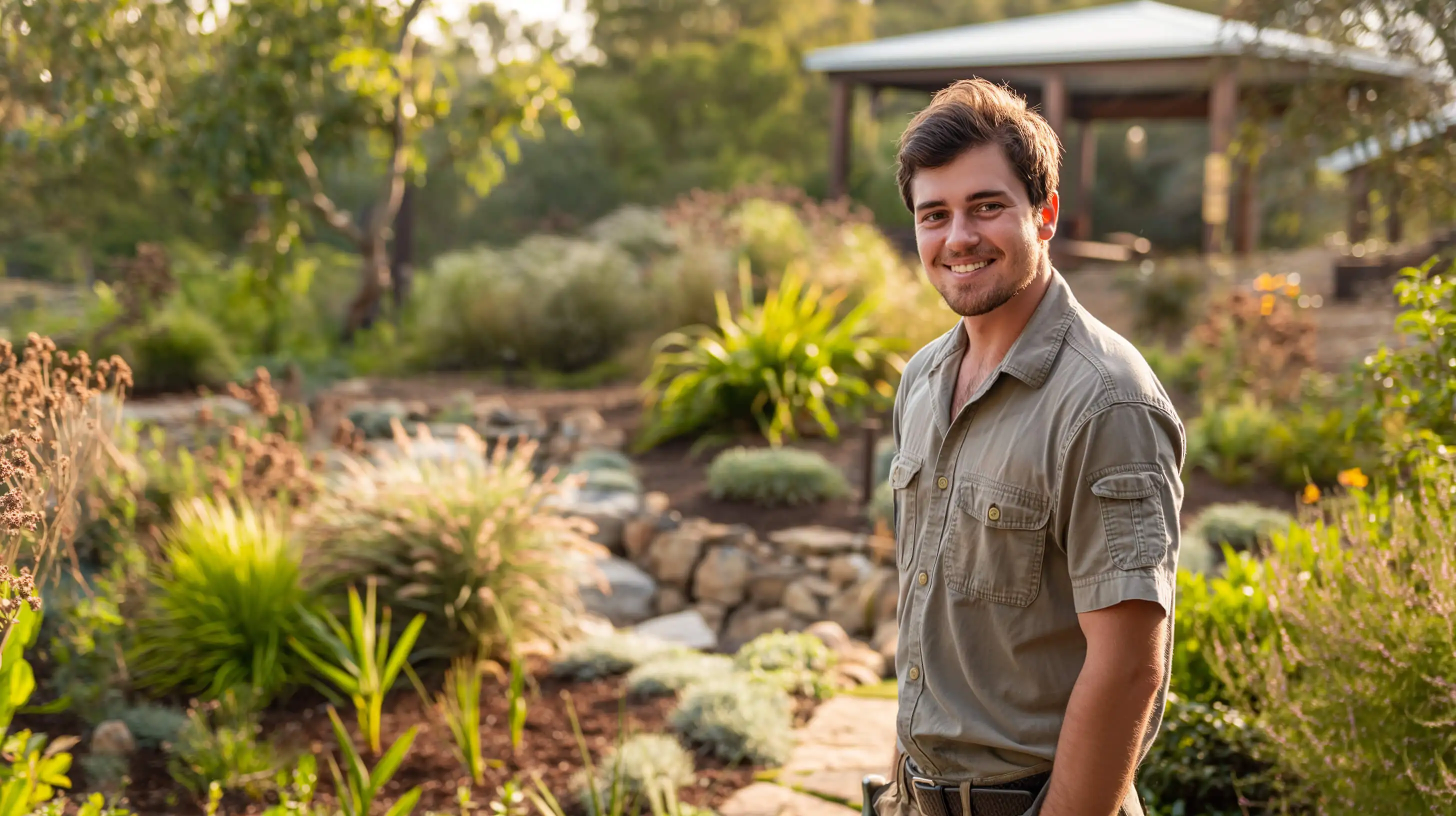
Bring plants to life — and help grow Australia’s green future
Nursery Grower
Nursery Growers and Propagators are hands-on horticulture professionals responsible for producing strong, healthy plants. Working in wholesale nurseries or propagation facilities, they help cultivate the plants that supply gardens, landscapes, revegetation projects and green infrastructure across the country.

Salary Range
$30 – $40/hour (Rates vary for experienced growers or propagation specialists; casual and full-time roles available)

Recommended Training
Certificate III in Nursery Operations, Certificate III in Horticulture

Job Listings
Browse current job openings and take the next step in your landscaping career.
Job Overview
Nursery Growers and Propagators are responsible for producing the plant stock that fuels the landscape, garden, revegetation and retail nursery industries. You’ll work across plant propagation, potting, irrigation, fertilising, pest and disease control, and general plant care, with a focus on healthy, vigorous growth.
Propagators often specialise in growing plants from seeds, cuttings or tissue culture. Growers support these plants through key growth stages until they’re ready for sale, dispatch or planting. This role suits people who enjoy structure, routine, and working with plans at a technical level — combining practical skill with patience and attention to detail.

Tasks & Duties
Propagate plants from seed, cuttings, divisions or tissue culture
Maintain plant health through watering, feeding, pruning and pest contro
Monitor humidity, temperature and light conditions for optimal growth
Operate and adjust irrigation systems
Pot up plants as they grow and prepare them for sale or dispatch
Track plant numbers, treatments, and growth rates
Assist with order picking and coordination with dispatch teams
Use nursery equipment like sprayers, trolleys or forklifts
Work as part of a production crew under senior growers or supervisors
How to Become a Nursery Grower or Propagator
Most growers start by working in a nursery, then progress into propagation or production roles with training and experience. Formal qualifications can be completed on the job through a traineeship or apprenticeship.
Common Training Pathways:
- Certificate II in Horticulture (AHC20422) A practical starting point — covers plant care, tools, safety, and nursery basics. Often completed through school or entry-level work
- Certificate II in Nursery Operations (AHC20724) Nursery-specific entry qualification — ideal for those working in propagation or production-focused environments.
- Certificate III in Nursery Operations (AHC31124) The core trade qualification for propagation and nursery growing includes pest control, irrigation, propagation and environmental practices.
- Certificate III in Horticulture (AHC30722) A broader horticultural qualification, suitable for growers working across general plant care and landscape-focused nurseries.
- Certificate IV in Nursery Operations (AHC40624) Designed for those moving into team leadership, advanced propagation, or production coordination roles.
Career Progression & Pathways
Many professionals start in parks and gardens and build long-term careers in plant care, greenkeeping, turf management, and team leadership, or branch out into their own garden maintenance businesses.
Starter
Nursery Worker, Trainee Propagator
Skilled
Nursery Grower, Propagation Technician
Advanced
Senior Grower, Nursery Supervisor, Production Manager, Tissue Culture Specialist, Nursery Manager, Horticultural Consultant, Business Owner

Already Working in Landscaping or Horticulture?
If you’ve been working in garden or grounds maintenance, you may be eligible for Recognition of Prior Learning (RPL). This process allows experienced workers to have their skills formally assessed and credited toward the qualification, helping you fast-track your pathway to becoming qualified.
Speak with a Registered Training Organisation (RTO) to explore your RPL options.
Other Key Considerations:
- White Card (Construction Induction) Required to work on school, council, or public infrastructure sites.
- ACDC Licence (QLD) This may be supported if weed control is part of your role.
- Driver’s Licence Helpful for travelling between job sites or operating equipment like trailers and ride-on mowers.
- Forklife Licence Common in wholesale operations
“Working in parks and gardens gives you a sense of pride. You’re part of creating spaces where families, communities and wildlife can thrive.”

Skills, Attributes & Experience
This is a detail-focused, plant-centered role best suited to people who are:
- Skilled in plant care, propagation and pest management
- Comfortable working with irrigation, fertilisers, and nursery systems
- Physically fit and happy working in greenhouses or outdoor production areas
- Patient and observant — especially with young or delicate stock
- Confident working independently or as part of a team
- Organised, with strong attention to detail and record-keeping
- Motivated to grow their knowledge season by season
If you love plants and enjoy the science behind how they grow — this is a role where every day you’ll see your work take root.

Not Sure Where to Start?
Upload your resume or answer a few quick questions and our AI will analyse your transferable skills to match you with suitable opportunities in landscaping.
